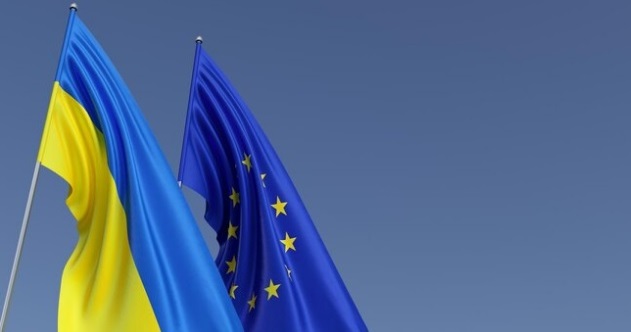Doing business

In the second year of Russia’s aggressive full-scale war against Ukraine, the European Union provides Ukrainians with effective political, economic, financial, humanitarian and military assistance, and imposes tough sanctions against Russia and those who are complicit in the war. The total amount of aid that the EU has directed to Ukraine since the beginning of the large-scale war has approached €50 bln, of which €37.8 bln is for supporting general economic, social and financial viability and about €12 billion for military aid. Also, during 2023, the European Union is ready to allocate another €18 bln.
In response to Russia’s unprecedented and unprovoked military attack on Ukraine, the EU imposed a comprehensive and powerful package of restrictive sanctions aimed at undermining the Kremlin regime’s ability to sponsor the war. In addition, the sanctions affected economic and political restrictions on the Russian political elite responsible for the invasion, with the aim of narrowing its economic base. With the help of the Freeze and Seize working group, EU member states froze almost €21.5 billion of assets belonging to Russian and Belarusian oligarchs.
The European Union is determined to ensure that the war crimes committed in Ukraine do not go unpunished. The European Commission, together with the international community, is working on the creation of a tribunal to investigate and prosecute the crime of aggression committed by Russia. The European Commission also supported the creation of the International Center for the Prosecution of the Aggression Crime in Ukraine as part of Eurojust, in order to facilitate the coordination of the collection of evidence from the aggression beginning. This Center is an important first step in ensuring the collection and documentation of key evidence for any future legal proceedings.
In particular, for the first time in its history, the EU centrally allocated €3.1 mln for the purchase of weapons for Ukraine, a country in a state of active hostilities. Some EU member states supply weapons and military equipment to Ukraine, the value of which significantly exceeds this amount.
The Council of the European Union at the official level continues to support Ukraine – this is military assistance to the Armed Forces and training of personnel. On October 17, 2022, the EU officially approved the allocation of another €500 mln tranche to Ukraine to increase the stability of the Armed Forces. In particular, €490 million is aimed at military equipment intended for the delivery of lethal weapons for defense purposes, €10 mln is intended to cover costs for the transfer of equipment and consumables such as personal protective equipment, first aid kits and fuel.
Also, an additional €45 mln was sent to support the EU EUMAM Ukraine training mission for the training of the Ukrainian military. As part of the mission, the EU is training twice as many Ukrainian military personnel as previously planned. It is about training 30,000 servicemen of the Defense Forces of Ukraine instead of 15,000. It is assumed that most of the exercises will take place on the territory of Poland and Germany. In addition, the European Union will provide Ukraine with €25 mln for demining.
Ukraine received €1.09 bln from the European Investment Bank and the European Commission, of which €550 mln is aimed at repairing the Russian energy infrastructure damaged by missile strikes and maintaining the stability of the Ukrainian power grid. The aid is also aimed at restoring the provision of municipal and basic services to the population in communities. Another €540 million will be paid by renewing the financing of joint projects.
Energy company Enel, as part of a joint project with the European Commission, is handing over 5,700 solar photovoltaic panels to Ukraine free of charge. This initiative is part of a wider EU effort to provide off-grid solutions that will supply electricity to key public buildings of a civilian nature in Ukraine.
As Ukraine’s future begins in its schools, the EU is supporting the reconstruction of damaged schools to the tune of €100 mln. The European Commission allocated about €14 mln for the purchase of school buses for the safe transportation of Ukrainian children to schools.
The EU is an important trade partner of Dnipropetrovsk region. A bilateral analysis of external activities testifies to the high level of partnership relations.
According to the results of 2022, despite the military aggression of the Russian Federation, the volume of goods export from Dnipropetrovsk region increased by 4.2%, which amounted to $4,252.1 mln. Among the goods that have the greatest demand among European consumers are ores, slags, ferrous metals and products from ferrous metals, products of vegetable origin, fats and vegetable oils, etc.
Export volumes of the following types of products have increased significantly:
The leaders among the EU member states that are consumers of Ukrainian goods are Poland, Slovakia and Romania.

The import of goods from the EU for 2022 amounted to $1,526.9 mln and decreased by 19.5% compared to last year. Dnipropetrovsk region bought the most chemical products, mineral products, ready-made food products, plastics and polymer materials, etc.
Compared to 2021, import volumes increased significantly, in particular:

The leaders among the countries of the world whose products were bought the most by Dnipropetrovsk region are Poland, Germany and Italy.